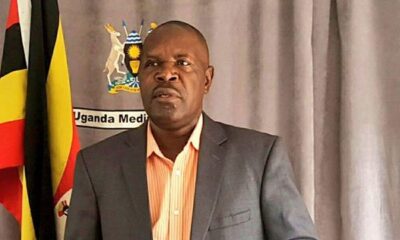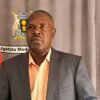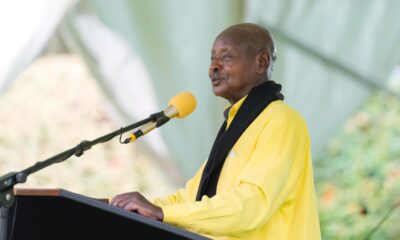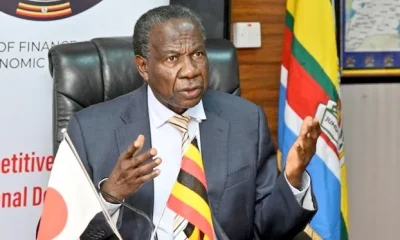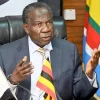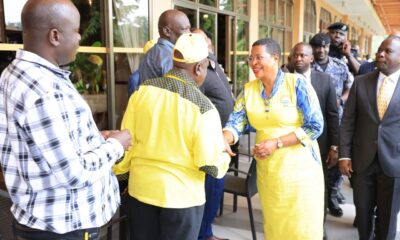Columnists
BOU probe: Mr. President, leave us alone
The inquiry has, so far, shown that the Bank of Uganda, an institution many thought was solid, is as shambolic as the economy it feels should not be regulated!
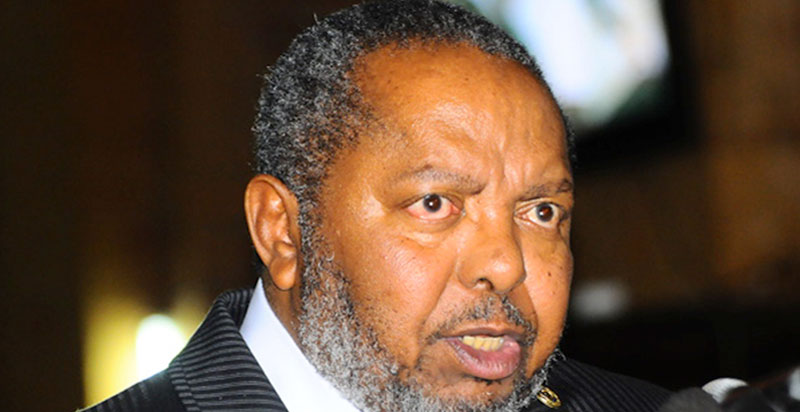
BoU Governor Mutebile
I spent much of July 2012 watching the BBC, as the House of Commons Treasury Committee grilled the Bank of England officials, including the then Deputy Governor, Paul Tucker, over the Libor rate-rigging scandal.
After days of watching the hair-raising probe, my eyes and hands got busier. I had to keep switching channels between the BBC and the CNN to follow another inquiry by the US Congress into Federal Reserve’s involvement in the same benchmark rate rigging.
Six years later, I woke up to reports in the papers that President Museveni had questioned the decision by Parliament’s Committee on Commissions, Statutory Authorities and State Enterprises (Cosase) to openly conduct investigations into Bank of Uganda (BOU) handling of commercial bank closures.
The President wanted Cosase to conduct their inquiry in camera. His argument was that what “people [should] see is action, not endless arguments.”
Well Mr. President, I also thought like you at the beginning. My fear was that in their quest for cheap popularity, politicians who sit on the Cosase committee might turn the probe into a theatre, ask unwarranted questions and make wild statements that might cause ripples in the economy.
May I say, what a marvelous job, so far, done by the committee! The Chairperson, Hon. Abdu Katuntu has led the probe astutely. However, I didn’t pick my pen to take the position of an umpire in the battle between the President and Cosase.
Governor not in charge!
The reason I picked my pen was to use BOU’s nakedness to make a case for my favourite subject – the need to regulate Uganda’s economy. For years, I have written, in these pages, and elsewhere that Uganda’s economy was running without rules.
Economists at BOU and Ministry of Finance have argued against regulation of the economy. They believe in markets and their capacity to self-regulate. Whenever we tried to appeal to them to consider the fact that markets may fail, they retorted, “Government failures are more hazardous to the economy.”
What the Katuntu probe has done is to give us a good laboratory to test these theories. Can institutions, let alone business entities, self-regulate? The probe has, so far, shown that the BOU, an institution many thought was solid given the caliber of people managing it, is as shambolic as the economy it feels should not be regulated!
The Governor is not in charge. He did not have reports he must possess. He was ignorant of processes he must know. He actually thanked the probers for helping him do his job.
Yet many thought he was the best CEO in town. I always had my own reservations nevertheless – see my piece four years ago.
Independence from accountability?
I always tell my students of public sector economics thus, “It is suicidal to trust the goodness of man.” Actually even conventional economics teaches us never to trust man. The rationality axiom, states thus “rational economic man maximises his utility.” Man has never been altruistic.
Any well-meaning economist will tell you, you cannot have a welfare-enhancing economy if you do not create a system of incentives and penalties, aimed respectively at eliciting man’s effort and taming their inherent fraudulent traits.
I have often decried the fact that Uganda’s economy is being run without rules . When we were asked to liberalise, we sent all regulators home and publicly denounced a few sensible public officials that tried to manage the liberalisation process as “backward”, “detractors”, “economic saboteurs”, or “primitive” bureaucrats who were chasing away investors.
The market fundamentalists, led by Mutebile, succeeded not only at convincing the economically naïve NRM Government that Uganda’s economy was better off when it is left on its own, but also that BOU autonomy meant absolute independence from public scrutiny.
An institution that is entirely owned by the government can, at best, be autonomous but not entirely independent. Central bank independence does not suppose, literally, independence from accountability.
“Throw the bums out”
The Mutebiles argued that as long as the BOU remained transparent, everything will be fine. But transparency is a consequence of the accountability process. In my view, central bank accountability represents the overall tool of society, media, financial markets and wide public in establishing whether the bank has reached its objectives and agenda within the presence of: clarity, truthfulness, efficiency and deontic powers.
More importantly, because the actions and activities engaged by the central bank affect the entire economic, social and political wellbeing of the society, the bank must be the subject of the scrutiny of the citizens and their elective representatives, the Parliament.
Going forward, the standard archetype for BOU should be: independence from the political pressures, accountability over the society, transparency beyond its actions and an efficient mode of communicating with the financial market and wide public.
The basic principle of democracy is that the public should have the right to control the actions of public policy/decision makers. It must have the capability to “throw the bums out” or punish incompetent policy/decision makers through various methods.
If policy/decision makers cannot easily be removed from office, the case of the legally entrenched central bankers, they should be punished in some other way. Exposing them through public probes is one of those methods. It will help to promote more efficiency in bank going forward.
Omnipotent, omniscient, altruistic
In future these well-paid ladies and gentlemen, especially others that will come after them, will strive to get decisions right. Actually, the law must be amended to make the Governor and his senior colleagues more accountable to the public. It is a global best practice.
In the US, for example, the ‘Humphrey-Hawkins legislation’ requires the Chairman of the Federal Reserve to testify to Congress twice a year. The Fed is subject to punitive actions by the Congress if it so chooses.
In New Zealand, the central bank governor is subject to dismissal if he/she breaches the goals set by the government – yet New Zealand is one of the ‘grandparents’ of the so-called central bank independence and inflation targeting.
For years, government has allowed Mutebile to use the law in the same way a drunkard uses light poles; for support instead of illumination. He positioned himself, and the bank as untouchable, omnipotent, omniscient and altruistic.
Like Dr. Ezra Suruma, the former Minister of Finance and also a onetime Deputy Governor of the BoU, wrote in his book ‘Advancing the Ugandan Economy,’ thus “[Although] it was desirable to protect the central bank from being directed to print money as General Amin had done in 1972, it was [equally] essential that the bank itself be accountable to the public for its activities.”
The questions to answer
Importantly, in the process of making the bank accountable, we should ensure that we do not get excited and take it back to the dark days when political interference was the norm. Like I wrote here early this year when Mutebile started to engage in open outbursts with IGG which attracted public scrutiny, we need to be careful as we refurbish the future of the bank.
It will have massive implications on the future of the economy itself. That’s why I am really happy with the way Katuntu has handled the probe. This should also act as reminder about the need to be careful when we are selecting leaders to head certain institutions. It is not about rewarding certain people. Certain positions need the best brains and deportment.
For BOU, what we need is a mechanism of policing the policeman of Uganda’s financial sector, to use the late Chris Kassami’s words. Should the Governor (the CEO of the bank) continue to chair the board where he/she is supposed to report? Does central bank independence mean having immunity from external monitoring by Parliament?
Why shouldn’t the minutes of meetings of the bank board be made public within a reasonable time? What about the minutes of meetings to decide monetary policy? Why shouldn’t they be published? Why shouldn’t past performance be a ground for dismissal of the Governor? Why shouldn’t the Governor appear before the entire parliament at least twice a year to answer questions?
Comments



